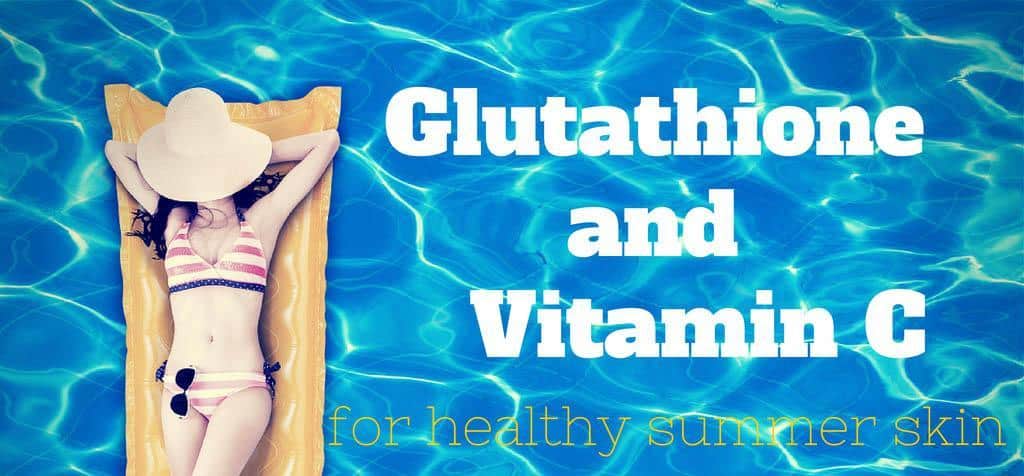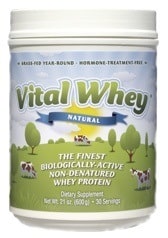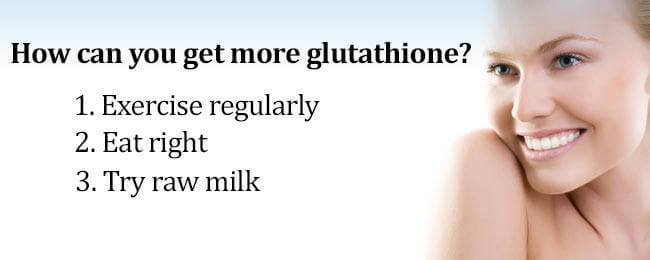Glutathione and Vitamin C Protect Your Skin Against Sun Damage
If there was one thing in the world many of us would wish for, it would be beautiful, healthy, and TANNED skin. We spend hours playing in the sun, applying suntan lotion to protect our skin from the UV rays that could lead to cancer. Summer is a time to bronze, which is why the beaches are always so crowded over the hot months. If you’re going to spend time at the beach, it’s important to get more of two specific nutrients: Vitamin C and Glutathione. Why are these two nutrients so important?
If you’re going to spend time at the beach, it’s important to get more of two specific nutrients: Vitamin C and Glutathione. Why are these two nutrients so important?
The Role of Vitamin C in Skin Health
When you spend time in the sun, UV rays are bound to be absorbed, no matter how much sunscreen you apply. The UV rays cause the formation of free radicals, which can lead to serious problems. Thankfully, Vitamin C reduces the damage that free radicals do to your skin, including preventing wrinkles, sun spots, and age spots.Your skin is protected by two proteins: collagen and elastin. Elastin helps your skin to stretch, preventing it from wrinkling. Collagen keeps your skin fresh and moist, preventing dryness and sagging skin. These two proteins are essential in order to have healthy skin, and Vitamin C is one of the nutrients your skin needs to produce these proteins. By consuming more Vitamin C, you give your body the nutrients it needs to manufacture more of the age- and damage-preventing proteins.
- Citrus fruits
- Strawberries
- Tomatoes
- Guavas
- Red and green peppers
- Brussels sprouts
- Kiwi fruits
- Grapefruit juice
- Cantaloupes
The Role of Glutathione in Skin Health
Glutathione is another nutrient that plays a central role in the health of your skin, particularly in terms of pigmentation. Melanin is the pigment that determines the color of your skin. When you spend more time in the sun, more melanin is produced to protect your skin against damage. Too much exposure to the sun leads to overproduction of melanin, which in turn could lead to sun spots and dark patches on your skin.
Glutathione, however, slows your body’s production of melanin. This will stop your skin from becoming TOO dark, or from forming those dark spots that are so visible on your skin when you spend too much time in the sun. Glutathione WON’T stop you from getting a beautiful tan, but it will definitely help to prevent age spots.
Already covered in sun spots from too much time in the sun? Glutathione can actually help you to get rid of those spots. It can get rid of the toxins and free radicals produced by the UV rays absorbed into your skin, and it is able to lighten your skin.How can you get more glutathione?
- Exercise regularly. Vigorous aerobic exercise is the best way to increase glutathione levels, but strength training works as well.
- Eat right. Foods like cabbage, Brussels sprouts, cauliflower, and broccoli contain chemicals that help your body to produce more of this protein. Cinnamon, cardamom, and turmeric also work, as do pretty much any foods that contain sulfur.
- Try raw milk. Raw milk contains precursors that enable your body to produce glutathione, so it’s worth trying if you can get your hands on some unpastuerized milk. Whey protein works as well.
 An excellent source of Glutathione is provided by our Vital Whey product – click here.
Follow the tips above to have beautiful and healthy summer skin!
An excellent source of Glutathione is provided by our Vital Whey product – click here.
Follow the tips above to have beautiful and healthy summer skin!- Best Fitness Supplements: Glutamine and Colostrum Uses and Benefits - December 19, 2019
- Cooking with Protein Powder - November 22, 2019
- Is There A Point To Taking Whey Protein After Cardio? - September 16, 2019






My brother suggested I might like this website. He was entirely right. This post actually made my day. You can not imagine simply how much time I had spent for this info! Thanks!
Blog commenting is an important part of bogging. How to do blog commenting is really an Art and every blogger should learn that art. Your article really teach us how to do blog commeting effectively. Really an awesome blog post. Thanks for sharing
Best ever Blog
nice